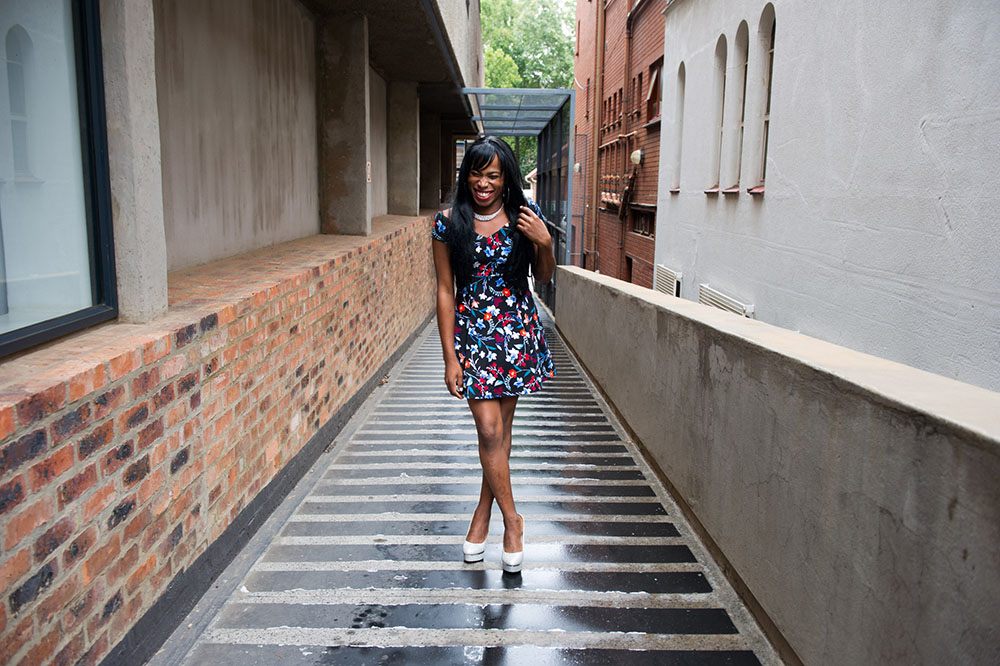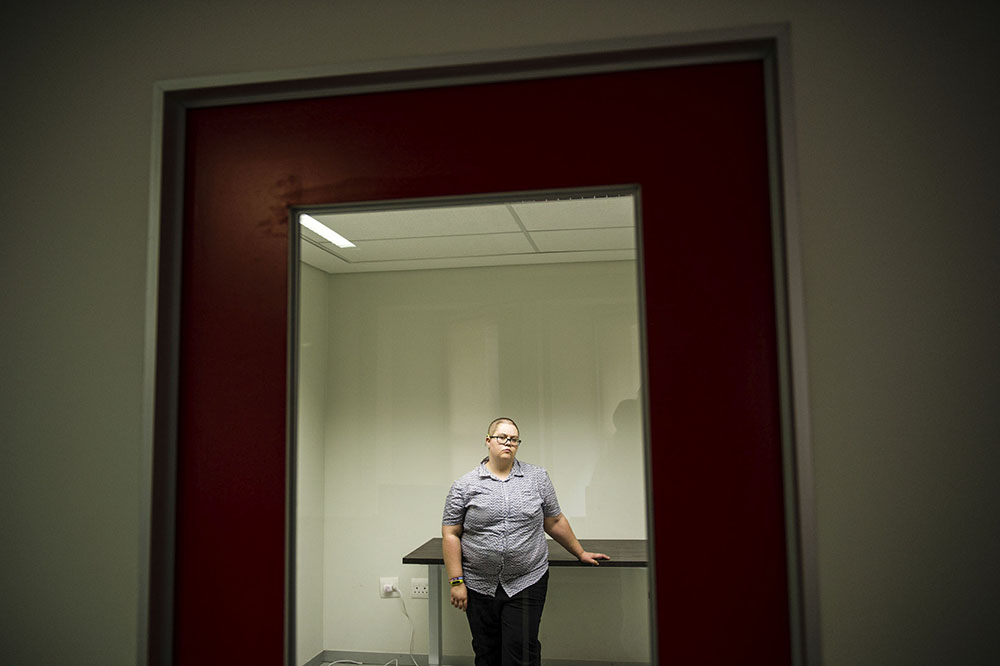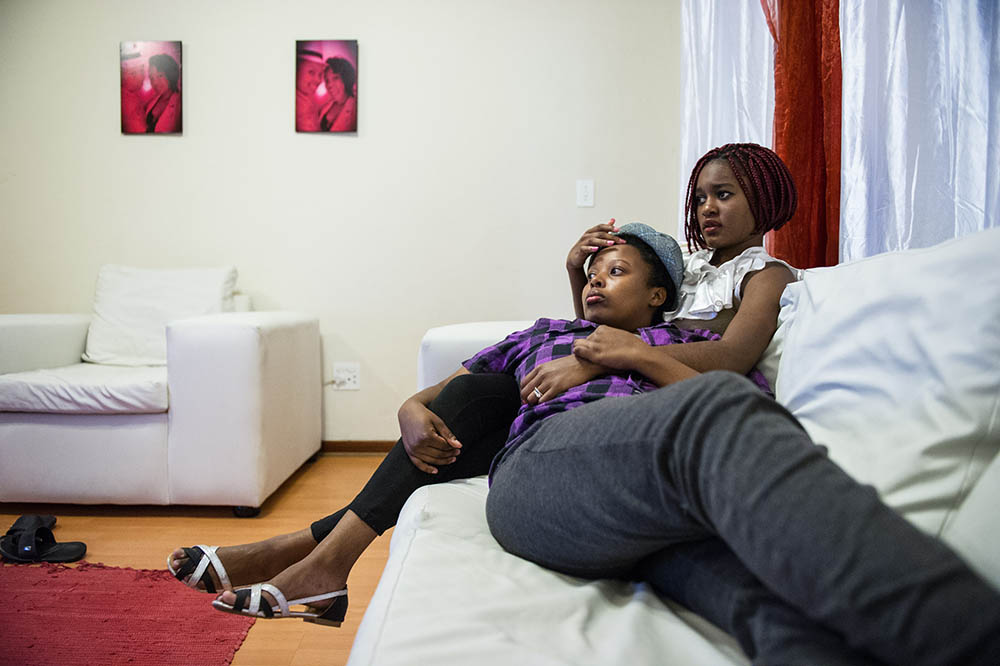John Meletse is a co-ordinator of the See It
‘People are crazy,” John Meletse laughs. “They think disabled people can’t have sex; that we have no desire for sex. But we’re the same as able-bodied people, exactly the same.”
Meletse, a disability and queer rights activist, might laugh at the commonly held misperception, but the seriousness of it led him to initiate the See It, Sign It, Know It, Share It project in 2006.
The project fell under the Deaf HIV and Aids project by Gay and Lesbian Memory in Action (Gala), and aimed to reduce the level of HIV and Aids in South Africa’s deaf population.
“Deaf people have HIV too, but there is so little information directed at them, especially the deaf lesbian, gay, bisexual, transgender and intersex [LGBTI] community.”
Cheraé Halley, one of Meletse’s partners in the project, says: “Homosexuality is extremely discriminated against in the deaf community. Even sign language was largely discriminatory.
“The sign language used for ‘gay’ indicated anal sex. So, people were going around using these kinds of signs that were actually discriminatory. For a gay person, seeing someone use that sign was offensive.
“What particularly came out of [our sessions was] these boxes that we have created, labels such as LGBTI were not known in the deaf community.”

Eva Mofokeng. (Photos: Delwyn Verasamy, M&G)
Eva Mofokeng, a transgender woman, was one of the participants in the project. She identified as a gay man prior to participating.
“It was very difficult,” says Mofokeng of the years prior to realising her identity as a transgender woman. “I was experiencing a lot of discomfort with the emotions I was feeling. But when I realised I was transgender and not gay I felt happy, happy that I could show my deaf community who I am, who I really am.”
Her newfound confidence saw Mofokeng entering the annual Miss Gay Jozi competition.
“In 2014, I was first princess, and I’ve been a part of the pageant ever since. But, before joining the pageant in 2013, even gay people wouldn’t speak to me. I had to make a plan to have an interpreter with me.”
Mofokeng says she found her community through the project. But it ended in March last year, largely because of a funding shortage.
Meletse says: “It is sad that it is no longer running. There is a need for the hearing and able-bodied community to see us.”
In her bid to make able-bodied people see her reality, filmmaker Shelley Barry has explored the intersection between disability and sexuality in her work.
“The truth of the matter is that people with disabilities are relegated to the margins of society. Our issues are often not considered as human rights issues. People think it is quite acceptable to pretend that we do not exist or even matter. Mostly, we are pitied, patronised and made invisible.
“People constantly make assumptions about our lives and abilities. One of these assumptions is that we are asexual or not desired and not worthy of love and intimacy.”

Tish White.
Tish White, who identifies as non-binary, has been diagnosed with epilepsy, bipolar disorder, attention deficit hyperactivity disorder and post-traumatic stress disorder.
“When it comes to queerness, there’s already a lot of stigma and pathology. With disability there is also this overarching assumption that, firstly, you don’t experience desire and that you, secondly, have to be protected. This combination can be condescending at best, and abusive at worst.”
Citing an example of this, White, who also identifies as asexual, says: “I remember seeing a doctor in hospital once and he asked me what I do for a living. I told him I work with LGBTIQA+ people. He asked me what the ‘a’ stands for and, when I told him, he said, ‘that’s a very serious disease’.
“Asexuality is so pathologised … it is not understood,” says White, adding: “One has to remember that, although a common side effect of mood stabilisers and antipsychotic agents is a drop in libido, being asexual has nothing to do with libido. If medical practitioners are not careful, they can play a very damaging and abusive role.”

Patience and Naledi Mufamadi-Mogashwa.
Patience and Naledi Mufamadi-Mogashwa have been married for two years. Patience has been diagnosed with borderline personality disorder and frontal lobe epilepsy, and Naledi has been diagnosed with depression and anxiety.
Her family’s refusal to accept her sexuality made Patience attempt suicide. Although she says she initially “never really took being diagnosed with depression seriously”, she adds that the lack of family support “definitely made my illness worse”.
The couple have also had to face insensitive, prejudiced and uninformed medical practitioners.
Naledi says: “I have been to clinics where, after I said that I am in a relationship with a woman, I’d have nurses or doctors ask me, ‘but how does that work?’
“This kind of thing has made us want to avoid seeing medical practitioners about certain things in our lives. It used to make my anxiety much worse, just the thought of having to tell this person how you have sex or whatever.”
A report titled Disability, Sex Radicalism and Political Agency highlights the double discrimination that queer people with disabilities face.
Written by Abby Wilkerson in 2002, the report uses “queer and disability perspectives” to argue that sexual agency is central to political agency. A group’s experience of sexually based harms and constraints on sexual agency should be recognised as a “hallmark of oppression”.
The report found that “medical authority over sexuality” had the ability to shape people’s sexual options and even their sense of themselves as sexual beings.
“Even, and perhaps especially, when this authority is used in benevolent ways, it accords the medical profession and related institutions an increasingly influential form of political power, which is too seldom acknowledged,” says the report.
Eddie Ndopu is a queer and disabled persons rights activist, and was recently included in the Shaw Trust, which works with employers, social services and the disabled to help people with disabilities find employment, list of 50 Most Influential Disabled People. He is the subject of a recently released documentary commissioned by the United Nations, titled My Dreams Are Huge: Disability in South Africa.
“There is a desexualisation of people with disabilities, an imposition of the absence of wanting sexual pleasure. You are told that you should not want to feel desire because you’re disabled. It is quite insidious.
“If we look at the way in which we construct beauty and pleasure, in a very active way, we render disabled bodies undesirable and invisible. As a society, we need to start seeing sexuality in more complex ways. We need to re-educate ourselves.
“You know, in my previous relationships, I had to do a lot of educating. But at this point in my life, I’m not compromising. I’m at a point where I’m like, ‘Ag shame, your imagination is not wide enough to encompass other bodies. It’s not me that’s at fault here. Your sexual imagination is so narrow, I can’t help but feel sorry for you,” he laughs.
“This is the magic of what queerness and disability offers us: queerness disrupts gender, sexuality and identity — all these normative constructs. Disability is another kind of disruption, albeit an unintentional one.
“So I’m not compromising. I’m not diminishing my queerness or my disability to accommodate someone’s sensibility. I’m an unapologetically disabled, black queer.”
Equally unapologetic about being disabled, black and queer, Mofokeng will again enter this year’s Miss Gay Jozi competition.
“Yes, I’m there again,” she says. “I will continue. And I will win. I want the hearing community to see me. I want to show them who I am, what I am and what I can do.”
Carl Collison is the Other Foundation’s Rainbow Fellow at the Mail & Guardian.
